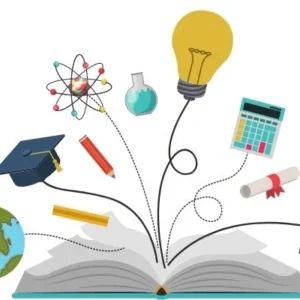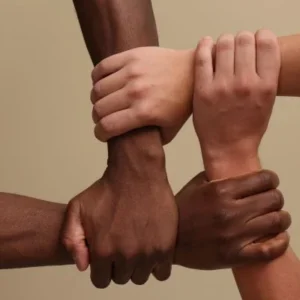Innovation holds the potential to transform communities and create new opportunities for future generations, but to be impactful, it must be inclusive. Recognizing this, the Young Africa Innovates (YAI) programme—implemented by UNDP in partnership with Ghana’s Ministry of Education and funded by the Mastercard Foundation—has launched a school outreach initiative to engage and support young innovators, including students with disabilities.
The outreach programme is designed to identify, nurture, and amplify innovation among secondary school students across Ghana. It ensures inclusion by targeting both mainstream and specialist schools, so that no group is excluded. To date, YAI has reached more than 1,390 students across 16 regions, with specialist schools making up over 7% of the participants.
The first phase of the outreach focused on the Mampong School for the Deaf and the Akropong School for the Blind. Students were introduced to the YAI programme, which offers mentorship, training, and access to resources to help transform their innovative ideas into solutions addressing real-world challenges. Dr. Allen Anie, Chief Technical Advisor for YAI, emphasized that the goal is to equip young people—including those with disabilities—with tools and support to develop impactful solutions for their communities.
School leaders welcomed the initiative, noting its positive effect on students’ confidence and skills. At Mampong, Headmaster Ametewee Setumte highlighted the importance of such programmes for students with vocational training, while at Akropong, Headmistress Veronica Derry expressed appreciation for the inclusion of schools often overlooked in development initiatives. Both leaders stressed the value of giving students with disabilities equal opportunities to explore their potential.
The outreach also showcased remarkable creativity from students. At Mampong, two junior high school students, Janet Maku Dagodjo and Neptune Elorm Kwaku, presented artwork focused on climate action, with aspirations of opening a professional art centre in the future. Vocational student Perfect Fianyeku displayed her hand-stitched clothing designs, reflecting both skill and entrepreneurial ambition.
Through initiatives like this, the YAI programme is making innovation more accessible and equitable. By engaging students with disabilities and mainstream learners alike, it is uncovering hidden talent, bridging gaps in access, and empowering the next generation of innovators. Selected participants from the outreach will have opportunities to join bootcamps, where they will receive tailored training, mentorship, and funding support to refine their ideas into scalable solutions.







